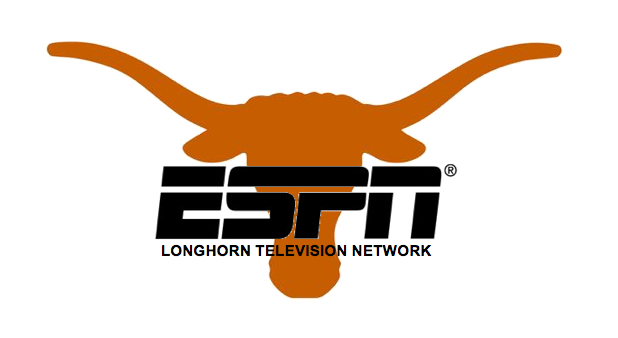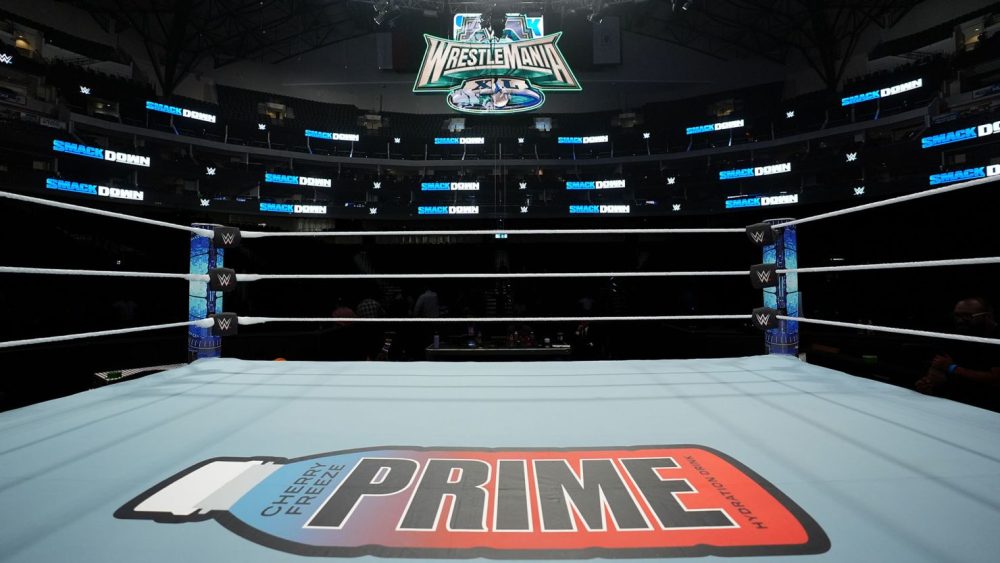I’ll be honest, college realignment is perhaps the most difficult subject I have ever had to write about. My Real Analysis class in college was easier to grasp and I once scored a 14/100 on a test there. You can also tell why I never got that PhD in mathematics… In trying to tackle the most recent realignment developments over at Crystal Ball Run, there was one element to the grand scheme of things I couldn’t get past.
The big, bad, Longhorn Network.
Yes, that beeming burnt orange creation of the University of Texas and ESPN appears to be the reason why the plug was pulled on the latest round of realignment talks. It seemed that Texas, Oklahoma, Oklahoma State, and Texas Tech were going to finish off the Big XII and move on to the greener pastures of the Pac 12 as of 48 hours ago. However, late Tuesday night, the Pac 12 and commissioner Larry Scott released a message saying the conference was not going to expand beyond 12 teams. The key portion of the statement was this little nugget aimed squarely between the eyes of Texas:
While we have great respect for all of the institutions that have contacted us, and certain expansion proposals were financially attractive, we have a strong conference structure and culture of equality that we are committed to preserve. With new landmark TV agreements and plans to launch our innovative television networks, we are going to focus solely on these great assets, our strong heritage and the bright future in front of us.””
We’ve previously discussed the Pac 12’s interesting idea of not only a national television network, but regional networks split between the teams as well. Clearly, Texas didn’t want to play that game as they dealt with leaving the Big XII for the Pac 12. Texas and the Longhorn Network doesn’t align with a “culture of equality” that exists in the Pac 12. That culture of equality is non-existent in the Big XII, where the conference might as well be named Texas and the Little 9.
It may feel like the first Bush administration when this happened… but think back to a year ago when the Big XII was again teetering on the edge of existence. In a compromise pulled out of the fire, the Big XII was pieced together with Elmer’s glue and duct tape thanks to a conference model that allowed Texas the green light for the Longhorn Network. This meant the University of Texas would pull in much more dough than their Big XII rivals, which was already happening in unequal revenue splits. A year ago, this was perfect for Texas – they got to play the Big XII savior card while also getting stupid rich. Schools like Baylor, Mizzou, and Kansas could stay under Texas’ wrath, but at least that would be better than the Mountain West.
However, the good will from the resurrection of the Big XII didn’t last for long. Andy Staples put it best in Sports Illustrated a couple months ago…
The buzzards took flight again this week because of an internal squabble among league members over The Longhorn Network, Texas’ new 24-hour channel that will launch Aug. 26. What’s interesting is that The Longhorn Network is one of the main reasons the Big 12 still exists. Now, the Big 12’s existence seems threatened by The Longhorn Network. Quite a paradox, isn’t it?
With the Longhorn Network becoming a reality this summer, the trigger fingers of antsy Big XII schools got itchy again. Evidently, it must have kicked in that they had submitted to Texas being unquestioned lord and master of the world. When the plans of the LN televising high school games and other details were being floated around this summer, Texas A&M showed their own SEC speed in bolting for the Southeastern Conference. The Aggies left largely to get out of the shadow of Texas and, you guessed it, the Longhorn Network, which has been the key to any and everything involving realignment…
Recently, with the Big XII crumbling, it appeared that Texas would jump to the Pac 12. From the outside, my guess is that when push came to shove, the Pac 12 didn’t give in on equal revenue sharing while Texas didn’t give in on making any concessions with the Longhorn Network. Now, with nowhere else to turn, the Big XII schools and Oklahoma in particular are stuck where they were a year ago. Sure, they may be able to force out Dan Beebe and gain equal revenue from national rights deals, but Texas is still going to rule the roost. Does it sound greedy and arrogant on Texas’ behalf to not be willing to give an inch of ground with the Longhorn Network? Absolutley. Is it smart business to hold on to every penny of the Longhorn Network and maximize the advantage it creates? You bet. From Kirk Bohls at the Austin American Statesman…
Texas is committed to equal revenue sharing for all its Tier 1 and Tier 2 television rights with other Big 12 members, but Longhorns athletic director DeLoss Dodds told a select group of reporters Wednesday afternoon that the Longhorn Network is non-negotiable and will not be compromised.
In other words, Texas’ $300 million network venture with ESPN is not on the table for discussion.
Dodds said the relationship between Texas and Oklahoma remains strong, and that the Longhorns and Sooners both are committed to the future of the Big 12.
“I don’t think our network is in play,” Dodds said. “Our network is our network. Anybody can do one. If somebody thinks something is wrong with our network, and thinks it’s hurting the conference, we would absolutely address it.”
So Oklahoma and the other schools may get their pound of flesh with what may technically amount to equal revenue, but make no mistake – the huge shadow cast by the Longhorn Network over the Big XII and college football is still present… and expanding.
When talking about the Longhorn Network before, we approached the story from the perspective of ESPN losing their sense of impartiality and the dangerous precedent being set. Stray Top 25 appearances for the hell of it only adds to the legitimate questions towards the leader. How could ESPN faithfully cover the Longhorns with hundreds of millions of dollars invested in their success as a business partner? The creation of the Longhorn Network was just another disconnect between ESPN and an air of impartiality and trustworthiness. Credit Outside the Lines for publishing this sexual harrassment story about a Texas assistant coach, but ESPN needs to do a lot more to earn back the benefit of the doubt. From the point of view of college football fans, the Longhorn Network makes you queasy in the same way it does whenever Craig James takes the screen.
But what about from the perspective of the University of Texas? For the Longhorns, the creation of their own network is a visionary piece of brilliance. Why settle for an equal revenue sharing model of the Big Ten or the Pac 12 when you don’t have to? Why not take the chance to build an empire instead of wanting to enhance parity and help Baylor? With the Longhorn Network, Texas can not only stay ahead of the curve, but inhabit a new reality of wealth, power, and influence. It’s far from the noble thing to do, but this is a capitalist society after all. If we’ve learned anything about college football the last year, it is a cutthroat business where you do anything possible to get ahead.
Which is what leads to perhaps the most fascinating perspective involving the Longhorn Network. In the past week, we’ve learned what the college football world thinks of the Longhorn Network. They are scared to death of it. If anyone ever questioned the Longhorn Network as a gamechanger in college athletics, question it no more. The Pac 12 and Larry Scott shut the door on Texas entering the league because they would immediately make more money and be more powerful than any other university if the LHN stayed alive. A Pac 16 with Texas would have become the conference du jour and the proverbial realignment pot of gold. And yet, massive realignment and the dawn of the 16 team superconference was halted because of the Longhorn Network. There will be minor moves along the way involving these conferences, but for now, the apocalypse of the current landscape as we know it is not happening.
For the time being, that’s just fine for Texas. They’ll happily go back to the Big XII where they will continue to hold all the trump cards with their Longhorn Network, which is somehow even more influential than we ever imagined.







Comments are closed.